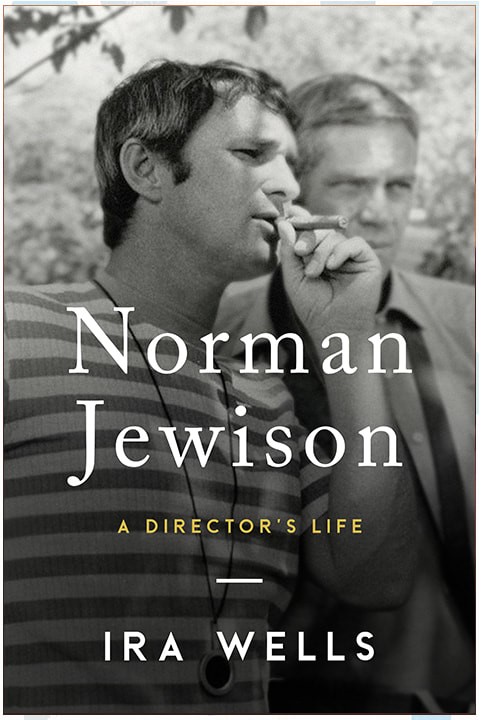Ira Wells
 Email This Post
|
Email This Post
|  Print This Post
Print This Post
Professor Ira Wells of Victoria College at the University of Toronto discusses his new biography Norman Jewison: A Director’s Life (Sutherland House, 2021), with Joseph Planta.
 |
Norman Jewison: A Director’s Life by Ira Wells (Sutherland House, 2021).
Click to buy this book from Amazon.ca: Norman Jewison |
Text of introduction by Joseph Planta:
I am Planta: On the Line, in Vancouver, British Columbia, at TheCommentary.ca.
I so enjoyed reading the new biography by Ira Wells, Norman Jewison: A Director’s Life, that it got me thinking about movies, Jewison’s movies in particular, the one’s I liked, and the one’s I haven’t seen yet. That Jewison is one of the more durable filmmakers in the second half of the twentieth century is without question. He started making movies after success here in Canada at the CBC in the early days of television, as well as directed and producing television variety in the United States with Harry Belafonte, and Judy Garland, among others. His films in the early 1960s capture Hollywood as the old studio system was ending. He directs people like Tony Curtis, Doris Day, Joan Blondell, and Edward G. Robinson. Then he moves into the mid-to-late 1960s with such iconic films as The Russians Are Coming, The Russians Are Coming, In the Heat of the Night, and The Thomas Crown Affair. In the 1970s, he directs two very popular movie musicals of the era, Fiddler on the Roof, and Jesus Christ Superstar. He moves through the 1970s and 1980s working with such stars as Sylvester Stallone (in F.I.S.T.), Al Pacino (in …And Justice For All), Burt Reynolds and Goldie Hawn (in Best Friends), Jane Fonda, Anne Bancroft and Meg Tilly (in Agnes of God), and Cher and Nicolas Cage (in Moonstruck). There was also A Soldier’s Story, a 1984 nominee for the best picture Oscar, that featured a Black cast. Ira Wells joins me now to talk about Jewison’s life and times, his films, and the craft of the movie business that’s revealed through his research. It’s fascinating to see how movies are cast or how much actors are paid, as we see for the first time insight from Jewison’s letters, notes, annotated scripts, memos and more. Ira Wells is an assistant professor in English and Academic Programs at Victoria College at the University of Toronto. His writing has appeared in many publications including The Guardian, the New Republic, the Walrus, Globe and Mail, Los Angeles Review of Books, and American Quarterly. This new book is published by Sutherland House. Please welcome to the Planta: On the Line program, Ira Wells; Professor Wells, good morning.
Podcast: Play in new window | Download (32.8MB)
Subscribe: RSS

